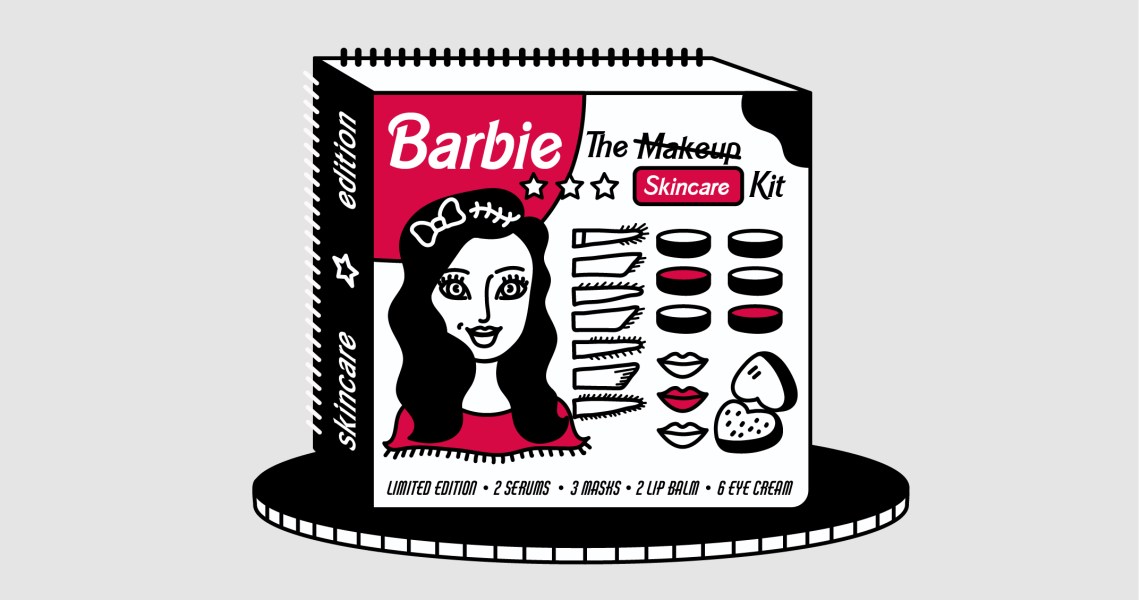This story is part of Endgames, a Digiday Media editorial package focused on what’s next, what’s coming, and what’s being phased out in the industries we cover. Access the rest of our Endgames coverage here; to read Digiday’s Endgames coverage, click here; Modern Retail’s coverage is available here.
In 2020, foundation became moisturizer, mascara was meant to “nourish” lashes (not lengthen), and lipsticks had skincare benefits — hello, lip oils and masks. In essence, makeup became skincare.
In a year when all people were forced to do less, casual beauty consumers and beauty enthusiasts shied away from color cosmetics. But in order to get shoppers to buy — beauty brands leaned more heavily into skin care to talk about makeup.
The color cosmetics category has been slowing since 2018, due to a number of factors including a proliferation of brands and products (ahem, palettes) in the space — but it’s been walloped since the start of Covid-19. According to The NPD Group’s “Makeup Consumer Report” in May, seven in 10 women reported wearing makeup less often this year. Fittingly, the firm also reported that makeup sales slowed by 31% year-over-year in the third quarter to $1.4 billion.
But not all makeup brands struggled. Ilia Beauty has experienced more than 200% sales growth on Sephora.com since the pandemic, and Kosas is expected to earn $50 million to $60 million in retail sales this year. In the cases of Ilia and Kosas, their clean, skincare benefit stories help draw in and retain new consumers, especially those who want to look a little bit more polished (or less like their usual selves at home) on Zoom.
For instance, Ilia’s serum skin tint is a makeup-skin care hybrid product that launched in February. While the foundation could have fallen flat during the pandemic, with the lack of store support during shelter-in-place closures, it had two sell-out periods and a 20,000-plus person waitlist in the summer. It has become the brand’s No. 1 best-selling product.
Foundation, of course, is a natural way to mix a moisturizer or sunscreen point of view, into makeup, but it’s veritably impossible for products like eyeliner to sell a skincare concept.
Ad position: web_incontent_pos1
Emily Gerstell, associate partner at McKinsey & Company, said, “We’ve been talking about skinification of hair for some time, or treating the scalp and hair as an extension of your skin, but what we’re seeing now is the skinification of color cosmetics.”
“Every category has to look different, so when makeup does come back, it will have a different spin,” said Vennette Ho, managing director at Financo, earlier this fall. “Is it really makeup, or does it have skincare benefits? Is there a message around sustainability or inclusivity? Uoma, Juvia’s Place and Beauty Bakerie are growing because they are doing something different. Makeup brands aren’t going to comp up 30% just by launching new palettes anymore.”
There is also the question of whether consumers want a product that is meant to satisfy the makeup and skincare propositions as one, or will pay for one. “A challenge for color has been that consumers just care less about clean and natural formulations,” said Gerstell. She compared it to greenwashing in the beauty industry: “The sophisticated consumer may know whether something is natural or better for you, but there is tremendous confusion for mass shoppers. Many people think brands like OGX or Herbal Essences are natural, and buy them because of that positioning. They aren’t; that’s [just] what their marketing, messaging and packaging are telling people.”
It’s difficult for brands known for one thing to have authority in other categories, but the blurring is happening more frequently — and not just only within a smattering of products. Il Makiage is launching skin care in 2021, it is expected to hit $150 million in sales by year end, a 100% boost from 2019, and it’s exploring sale and IPO options with Centerview Partners and Goldman Sachs. Other brands like Morphe, known for its full-face high-pigment makeup products, are moving into the pandemic-proof skin category, as well, via its Gen Z brand Morphe 2 and likeminded partners.
Leonard Lauder’s lipstick effect is expected to come to fruition once mass Covid-19 vaccines are available and mask wearing becomes a thing of the past, but until then, it appears every beauty brand needs to have a skincare play to make it through 2021.




